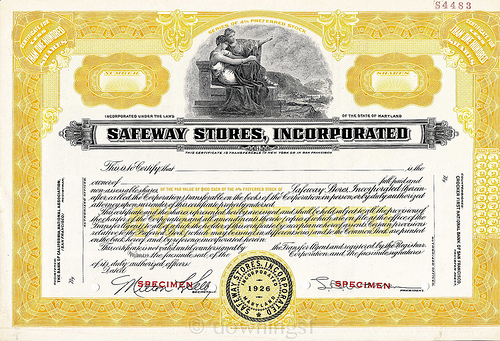
B class share schemes for employees and directors
Along with specialist tax advisors I am often asked by entrepreneurs to help them put together some kind of share scheme in order to incentivise senior employees through the payment of dividends and also make their remuneration more tax efficient by avoiding PAYE and National Insurance liabilities where legally viable.
This usually results in creating a new separate class of non-voting shares, often called ‘B class’ shares, that have fewer rights attached to them than ordinary shares, but permit the holder of such shares to be paid dividends (should there be sufficient distributable reserves) in proportion to the percentage that their shares make up the entire issued capital of all classes of shares.
Unfortunately there is always likely to be some inherent difficulties when a company tries to remunerate those working in the business with shares. Once a company share is issued they are inherently inflexible as they can only be transferred, repurchased by the company or cancelled, all of which have potential tax consequences.
As a company share has a bundle of rights attached to it once issued and the company performs well these shares may start to acquire value. However, if a new class of shares are created with very few rights and stringent restrictions attached to them, such growth in value will be limited. Tax legislation to reward employees without incurring higher rates of income tax and national insurance has resulted in this area of the tax code being particularly complicated and, at a basic level, the issue of any shares to an employee at an undervalue is made subject to income tax and national insurance anyway by HMRC, either immediately or upon the realisation of the share value. Also, the effect of the legislation is that any inflated share value received by the employee for the sale of their shares, should the employer lift the restrictions beforehand, is also taxable to income tax and national insurance and not the lower rates of capital gains tax.
Section 431 ITEPA 2003 Tax Election
As a minority share in an unquoted company is not particularly valuable in itself and the share’s valuation may be somewhat subjective (especially where a company has little or no dividend history), the employer and employee are more likely to make a tax election under section 431 ITEPA 2003 as they will prefer that they are taxed by HMRC on the unrestricted market value of the shares when they are issued (on the understanding that the shares are likely to carry full rights to capital in the future before an exit event) as this is likely to result in an overall lower tax charge. Otherwise, without a tax election if there is a considerable gain arising should the controlling shareholder(s) decide to sell the company this gain would be taxed to income tax and national insurance as if the individual had received the gain as additional salary.
As this would unduly penalise the employee shareholders, the employment related securities legislation permits the employee and employer to jointly elect that they will pay income tax and national insurance on the difference in the undervalue of the shares when they are issued. Having made the tax election the employee would be taxed as if they had received the additional shares at their unrestricted market value, but thereafter any gain in value from the shares would be subject to capital gains tax. Alternatively they can also elect to be taxed on the partial restriction basis and only be subject to income tax and national insurance on the gain in value of the shares if the restrictions are lifted. Any election under s431 ITEPA 2003 must be signed by both parties within fourteen days of the issue of the new employment related securities and retained with the company’s payroll records.
PAYE & Employer Compliance Issues
When shares are being issued to effectively replace the salaries of employees there is also a risk that HMRC may view the new class B shares as subject to PAYE resulting in an Employer Compliance Review visit where the HMRC officer may conclude that the B class shares are diverted salaries and therefore the amounts received should be subject to PAYE, thereby creating secondary employer national insurance contributions on the amounts received.
To minimise the likelihood of a successful challenge by HMRC the following points are recommended:
a) The company should only pay dividends when the company has sufficient distributable reserves and should prepare accurate monthly management accounts showing the profits that can be distributed.
b) The dividends should not be distributed in the same manner as the remuneration they replace so there’s no direct link between the amounts received and amounts foregone.
c) Dividends should be paid to all of the shareholders at the same time although they don’t need to be paid in the pro rata proportions if some shareholders have signed a dividend waiver.
d) The dividends on the B class shares should be paid at the same time as dividends on ordinary shares, or any other class of shares, are paid.
e) The relevant shareholders should continue to receive a small salary from the company so that they utilise their personal allowance and reduce the company’s corporation tax liability.
f) The company should have in place employment contracts with the relevant shareholders stating that their remuneration is at the level of the smaller salary.
